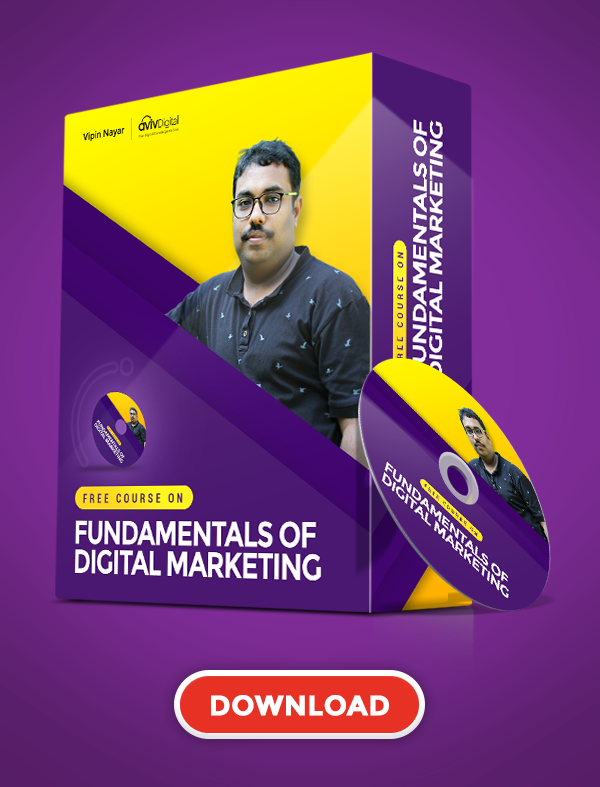
Digital marketing has been gaining attention among almost all businesses and people who are switching to this marketing arena. As technology shifts from traditional to modern, marketing through digital platforms has proven its progress in the new marketing era. If we don’t use the right tools for the right platforms, our activities as marketers will be in vain. This might bring lesser brand support and following.
The significance of tools has been rising with the trends in digital marketing, and several tools can help you with your needs. Here, we will compile a set of tools that can be helpful for the different activities of digital marketing and for reaching your desired result.
Top 10 Digital Marketing Tools
Tools are inevitable for digital marketing. Each marketer should have experience with the digital marketing tools that suit their work and purpose and use them effectively. Let’s gather them up and explore the niches and purposes for which they are used.
SEO Tools
Aren’t we familiar with the content we see on browsers like Google? Whatever we see in the search results, Google crawls and indexes and then ranks the content by considering its content, keywords, meta tags, and other factors. This is where SEO plays an important role and thereby, tools can help with its activities of optimisation.
- Google Search Console
This tool is a free application that anyone who wishes to pursue SEO activities can sign up for with a Google account. The main purpose of this tool is to check website traffic and performance and receive insights on the issues that can be useful in optimising web pages. Thus, Google Search Console is a better tool that will serve the goals that include:-
- Ensure Google crawls and indexes more quickly than it usually does.
- Helps in identifying the pages that are not crawled or indexed.
- It provides insights into the site’s performance in search results, such as security issues and mobile usability problems.
- It shows keywords that are used to search for and reach your site; thereby, content is improved for better search performance.
- Avails quality links to ensure the website’s quality.
- Ahrefs
Ahrefs is a handy SEO tool that is like a suite of tools, including Site Explorer, Keyword Explorer, Site Audit, Rank Tracker, and Content Explorer. Regardless of your background, you could explore these tools even as a newbie and get a touch over SEO. SEO experts prefer using Ahrefs as complicated and difficult tasks can be over with these tools.
If we sum up the activities we could do in Ahrefs, they may involve deciding the ranking of the keywords with competition in mind, checking the content performance, checking the worth of backlinks and identifying the broken links to build the domain authority, analysing and exploring the site, and finally track the ranking not just in your local area but also anywhere.
SEM Tools
To enhance the online presence and reach, Search Engine Marketing(SEM) comes to the area. Search engine is used for marketing as it drives traffic for the website’s visibility, for fixed consumers and location. As this boosts organic and paid search engine rankings, there is a need for a set of tools that can be used to make the efforts effective.
- Google Ads
Google Ads are Google’s PPC platform through websites that can gain an online presence in Google’s assets. The advertisements through Google ads can be classified into display ads, search ads, shopping ads and YouTube ads. If you think of building an online identity through SEM, Google Ads would be the best choice.
This tool is known for its flexibility, which allows ads to be formatted to meet specific needs. Its major benefit lies in targeting and understanding customer behaviours and patterns. It essentially aims to provide immediate visibility and precise targeting of consumers across various aspects. Thus, the results are proven to be cost-effective and measurable and also help re-engage the same customers.
- Facebook Ads Manager
Other than Google Ads, Facebook Ads Manager also serves SEM. Like Google, Facebook is a platform where ads are circulated and an online presence is built. As Facebook is the third most visited platform and has over 3 million users, this suits companies to get engaged very effectively. Facebook Ads is chosen for the following suitable reasons:-
- It can connect with a mass audience.
- It has the potential to increase website traffic and leads.
- It can target the audience by age, gender, location, etc.
- It builds the audience by the objectives of ads, which can be for awareness, consideration and conversion.
- It boosts social media engagement and improves SEO rankings.
- They are very scalable and cost-efficient.
SMM Tools
As social media has entered people’s social and economic lives, marketing through these platforms has also enabled companies to build their social networks to increase sales, drive website traffic, and boost brand presence. Social media platforms hence include Facebook, Instagram, X, and LinkedIn. Therefore, if there’s a need to catch the audience’s attention, there are tools that can be followed to market properly.
- Hootsuite
Hootsuite is an application that provides all the features needed for social media marketing. Three sets of tools/products categorise social media management: Social media, Social commerce, and Social care. The major set of tools are:-
- Social media calendar and planning
- Hashtag generator
- Canva templates
- Owlywriter AI
- Content Generator
- Conversational AI
There are some additional tools that certainly make this platform be used very efficiently by getting to engage with the customers, analysing the data, advance scheduling of social media posts and ad campaigns, and helping in managing multiple social media platforms into a single tool.
- Buffer
Buffer is another social media marketing tool similar to Hootsuite. Its options are classified into three categories: Publishing, Engagement, and Analytics. Buffer also allows users to manage and create posts and ads for various platforms like Facebook, Instagram, Pinterest, LinkedIn, etc. It has built a friendly interface that helps beginners start in their comfort.
This tool includes planning and scheduling social media posts, content calendars, analytics, and performance. It also integrates with other tools/ platforms like Canva, WordPress, Google Analytics, etc. With these features, collaborations are also considered and facilitated for the larger teams, with people from different positions who can assign and manage the tasks.
Email Marketing Tools
Just as search engines and social media have placed themselves in the marketing, email has also turned up to the dias. Thinking about email marketing, as a user, one can surely check their emails once in a while to see whether they have received anything promotional. If such an email reaches you, don’t you think they sent it just for you? So, email marketing does that with the tools that enable them to reach and engage with you closely, with specific tools, too.
- Mailchimp
Mailchimp is one of the most used classy platforms for email marketing. Its wide range of features enables personalised marketing campaigns that engage users with product sellers. It also provides a guide to lead your marketing efforts. Anyone can decide how to market by establishing a number of contacts and using the Mailchimp calculator, which allows you to calculate your costs, target, and revenue. Yet, the following uses of Mailchimp are the reasons that connect to its use:
- Enable building visually attractive emails using drag-and-down editor and various templates.
- Create personalised content to target a specific audience.
- Ensure automated workflows such as abandoned cart reminders, welcome series, etc.
- Tracks the performance of the campaigns and provides insights into it.
- Extends itself by integrating with other platforms like e-commerce and social media.
- GetResponse
If you’re searching for alternatives to Mailchimp, the answer could be GetResponse. Even though both platforms offer many features for email marketing, GetResponse has received much attention after Mailchimp increased its pricing plans and limited its features. It is believed that this has constantly simplified its features has reduced the time spent on email marketing, which has boosted the speed of email marketing.
The inclusion of AI, cheaper cost than Mailchimp, and several free features paid in Mailchimp are some of the factors that will help you switch to GetResponse if you struggle with the latter. It allows multiple audience targeting, several market automation features, and amazing signup form solutions and templates. Many advanced features for landing pages have enabled to use GetResponse at a much advanced level.
Digital Analytical Tools
From the word “digital analytics” itself, we can understand that when getting involved in digital marketing, we need data on our activities to analyse the brand’s presence today and build customised strategies in the future. Analytics is a core feature of digital marketing, and it is nothing without tools like Google Analytics. Let us understand the role of Google Analytics from the following.
- Google Analytics
Google Analytics is an important tool that collects and analyses data from websites or non-websites. The data primarily shows the website’s performance and, the traffic it generated, and so on. Other than the websites, platforms like social media, email, etc, have also started using Google Analytics, which is very much needed to analyse their respective campaigns. Hence, this tool provides real-time analytics for businesses to boost much of their brand’s strategies and presence. This tool also has an important role in SEO as it analyses keyword performance, insights into technical SEO, and mobile performance. Thus, this analytical tool has become used in major parts of digital marketing.
Market Automation Tools
Marketing automation is the process of segmentation, scheduling and tracking marketing tasks/campaigns. This benefits businesses by enhancing their effectiveness and providing more time to work on high-level projects. Therefore, using marketing automation tools would help explore how and why it is significant.
- Marketo
Marketo is a popular market automation tool that works across different channels, such as mobile phones, video, websites, and search advertisements. This tool promises to build customer understanding and boost conversion and sales. The activities aim generally to track and strengthen the leads, promote digital advertisements, integrate Customer Relationship Management(CRM), and personalise the website. It extends its activities to email marketing, consumer marketing, lead management, mobile marketing, etc.
Marketo’s integration with the Adobe Experience Cloud has enabled B2B(Business to business) and B2C(Business to consumer) marketers to enhance their digital marketing campaigns. This platform has also provided a set of tools, including predictive analytics, artificial intelligence, and machine learning. If you’re looking for assistance for your business, you can surely check out Marketo for better data-driven marketing strategies.
Conclusion
In the above sections, we have summarised the various useful tools for digital marketing activities. The tools discussed here are popular and have been satisfying and helpful for digital marketers. They can even ensure better marketing by using them together or substituting. In addition to these mentioned tools, you can explore more Strategies & Tools that will certainly cater to your needs. Finally, as niches of digital marketing work hand-in-hand, the tools also work together with the needs that arise.
Aviv Digital is one of the leading Digital marketing course in calicut. We offer a wide variety of globally recognized certification programs that include SEO, SEM, SMM, Email Marketing and Inbound Marketing courses. For more details, Contact us at: +91 8156998844







